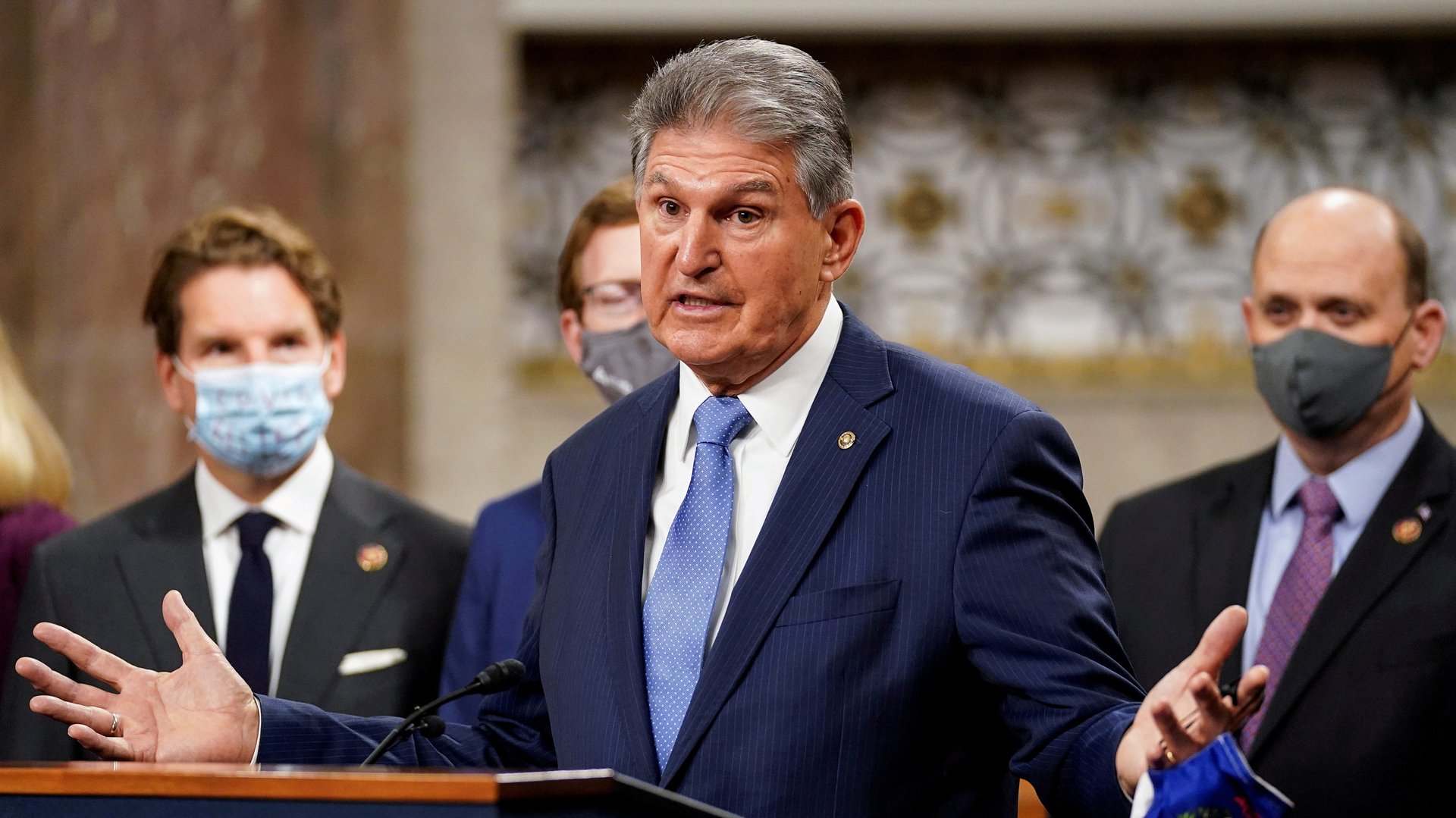Biden’s antitrust crusaders can’t crusade without Congress
US president Joe Biden is poised to promote two of the country’s most prominent anti-monopoly crusaders to top jobs in his administration. The moves signal that Biden is serious about cracking down on dominant companies that include Facebook, Google, Amazon, and Apple. But for the president’s trustbusting champions to make a real impact, they’ll need support from Congress.


US president Joe Biden is poised to promote two of the country’s most prominent anti-monopoly crusaders to top jobs in his administration. The moves signal that Biden is serious about cracking down on dominant companies that include Facebook, Google, Amazon, and Apple. But for the president’s trustbusting champions to make a real impact, they’ll need support from Congress.
Biden appointed Columbia law professor Tim Wu to the National Economic Council (NEC) as his top advisor on technology and competition on March 5. Politico reports that Biden will soon follow up by nominating Lina Khan, also a Columbia law professor, to the Federal Trade Commission (FTC). (Before she can take her seat as one of the antitrust agency’s five commissioners, Khan must be confirmed by the Senate.)
Khan and Wu are two of the leading voices in a new movement of legal thought that argues the US should fundamentally overhaul the way it approaches antitrust. The crux of their argument is that courts should broaden the values they consider when deciding whether to block a merger or break up a dominant company. Rather than focus narrowly on the impact a company has on consumer prices, they argue that judges should also think about a company’s impact on small businesses, labor rights, and the health of democracy.
Khan and Wu have already secured a win for their cause just by being appointed—essentially a White House stamp of approval on their viewpoints. But despite much handwringing from industry groups, neither appointee will be able to single-handedly remake American antitrust in their image.
How the FTC can tackle antitrust
To be sure, Wu can advocate loudly for his preferred policies from his perch at the NEC, which advises the president on economic policy. And if Khan makes it to the FTC, which is the top US antitrust enforcement agency, she’ll have direct influence over which investigations the agency prioritizes, which lawsuits it brings, and whether its prosecutors will ask judges to impose fines, break up dominant firms, or require them to change their business practices.
But there are clear limits to their power. The most the FTC can do is bring more antitrust cases that ask courts for more aggressive remedies, like breakups. That would allow the agency to make a point about what it considers acceptable business behavior. But many of those lawsuits would be bound to lose in front of judges who have grown far more skeptical of antitrust cases over the past four decades and far more conservative over the past four years.
A larger caseload would also require Congress to approve more funding for the cash-strapped agency, which is already struggling to pay for its current docket. “The agencies have been asked on many occasions to do a lot with relatively little…but it’s not for free,” says former FTC chair and George Washington University law professor Bill Kovacic. If the FTC wants to pursue more large cases without a bigger budget, “they’ll have to make choices, and those choices will involve backing off of other areas of enforcement.”
The FTC could also decide to dust off its rarely used rule-making power and declare certain anticompetitive business practices illegal. But any new rule would almost certainly trigger legal challenges, which would spark a long, expensive court battle in front of judges who aren’t likely to be sympathetic. Kovacic estimates the process could take four or five years—and in the end, judges might just strike the rule down.
How Congress can tackle antitrust
The best hope for stricter antitrust enforcement lies in Congress. Lawmakers could pass bills, like one recently proposed by Minnesota senator Amy Klobuchar, that would make it easier for enforcement agencies to challenge mergers and acquisitions. They could even go a step further and draft an updated set of antitrust laws, perhaps following the blueprint laid out in last year’s antitrust report from the House of Representatives (which was co-authored by Khan). Armed with new laws clearly banning specific behaviors, prosecutors at the Department of Justice and the FTC would stand a better chance winning cases against well-funded adversaries like Facebook and Google.
Those steps wouldn’t hinge on heroics from antitrust hardliners like Khan and Wu. Instead, their success would depend on the whims of Senate centrists like West Virginia’s Joe Manchin, who has lately been flexing his power to derail the chamber’s democratic majority in opposition to left-wing priorities like a $15 minimum wage.
Ultimately, Congress should be the body that sets US antitrust policy. It has the clearest authority to ban the bullying business tactics for which Big Tech firms have been criticized. Legislative fixes are likely to be quicker and less vulnerable to court challenges—not to mention more democratic—than changing FTC rules. And it has traditionally been Congress’s prerogative to keep the country’s antitrust policy up to date: Legislators updated the monopoly laws every two decades or so between 1890 and 1950 to respond to new threats. They’ve just neglected that tradition for the past 70 years.